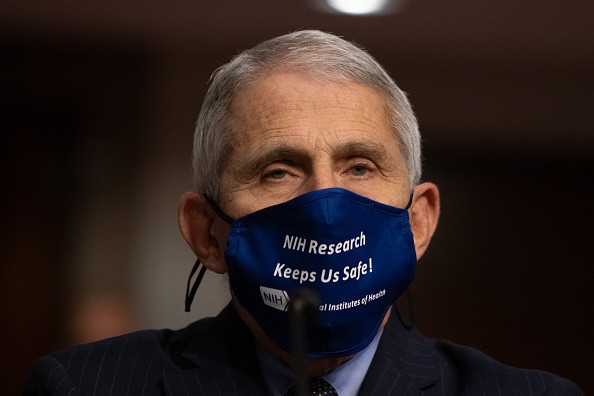Fauci: US to Return to 'Gradual Normalcy' Amid Coronavirus Pandemic by 2021

Dr. Anthony Fauci, the top infectious disease expert in the U.S., said Sunday that the country may return to a relative sense of normalcy from the coronavirus pandemic by 2021.
But Dr. Fauci's prediction on normalcy is not a stand-alone warning.
According to Business Insider, it is largely dependent on whether a majority of Americans receive a vaccine to fight off the coronavirus pandemic by the second or third quarter of 2021.
If most people get vaccinated in the upcoming months, Dr. Fauci believes the country might ease up safety measures by the first half of next year.
But normalcy in terms of people's social lives, or whether people can once more safely gather in large groups still depends on several factors, said a WTOP report.
Normalcy to be a Gradual Return
By that time, he expects people can start doing things that were considered too dangerous just months ago.
Dr. Fauci reiterates that getting things back to the way they were before the coronavirus pandemic isn't going to be a sudden change.
"It's not going to be a light switch," he said. "We're not going to turn it on and off, going from where we are to completely normal."
Fauci Optimistic with Pfizer Vaccine
Early data from Pfizer shows that the manufacturer's vaccine against the coronavirus was more than 90% effective.
Dr. Fauci touted these results and also noted that a second company is also expected to unveil its early results.
He added that while many demand an effective vaccine in the coming months, it is still important to consider the "uptake" on the vaccine or whether people actually get a dose, reported FOX News.
If most people do get vaccinated, the country will be granted with both an effective vaccine and a high degree of uptake of it. Both factors will help grant some safeguards against the spread of the coronavirus.
Vaccines are still looking to have optimistic results, but so far Americans are still being met by a slow rollout.
With Pfizer's two-dose regimen, this may raise some concerns as well. Since it's unlike other vaccines that only require one dose, Pfizer's vaccine will only be able to serve half the amount of people.
It's not yet clear when everybody can start receiving a coronavirus vaccine, but Pfizer said it can start making and delivering up to 50 million doses of their drug by the end of 2020.
That will amount to doses good for 25 million people.
So while Dr. Fauci did praise the results put forward by the drugmaker, he is still wishing for more people to get it.
"That's great, but we have to get people to take the vaccine," he said.
He added that people can't just "wish it happening," and have to take action as well.
Vaccines still have to be produced and must be deployed different parts of the country. Until then, public health measures should not be abandoned, he stressed.
He said people have to approach a sense of normalcy "while still doing some fundamental public health things" that can aid with the vaccine to get the country back to normal.
Other companies close to an effective vaccine are AstraZeneca and Moderna, which are testing their own vaccines in wide-scale trials.
Subscribe to Latin Post!
Sign up for our free newsletter for the Latest coverage!
© 2026 Latin Post. All rights reserved. Do not reproduce without permission.














